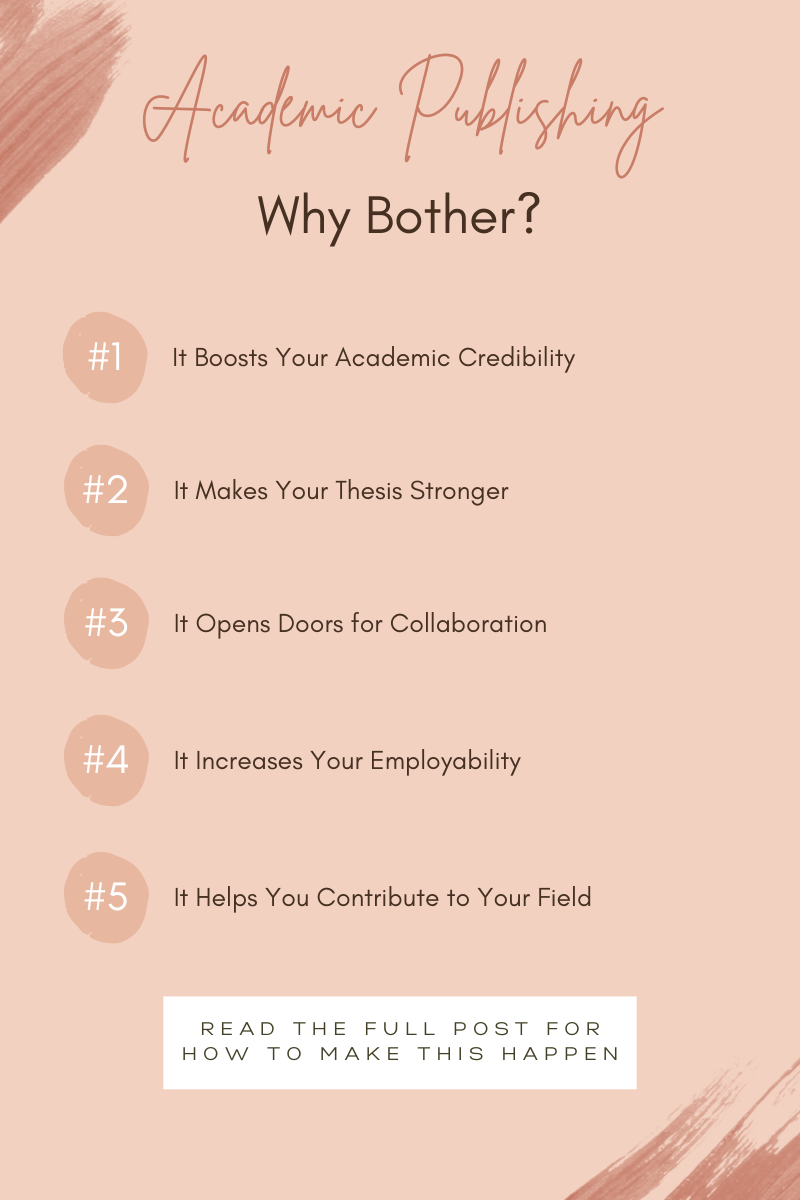Ah, the PhD journey—a thrilling adventure filled with moments of brilliance, long nights of existential dread, and an alarming number of coffee refills. While the ultimate goal is to produce a thesis, one crucial (and often overlooked) aspect is creating work that is actually publishable. Because let’s be real, after spending years agonising over your research, you’d probably like it to be read by more than just your supervisor and external examiner.
But why should you aim for publication during your PhD, and how can you do it without completely unraveling? Let’s dive in.
Why Bother With Publishing?
- It Boosts Your Academic Credibility
Publishing in peer-reviewed journals establishes you as a legitimate researcher in your field. Future employers and funding bodies love to see a solid publication record—it’s basically the academic equivalent of a five-star Yelp review.

- It Makes Your Thesis Stronger
If your work has already been scrutinised and approved by peer reviewers, it’s a good indication that your research is solid. Plus, sections of published work can often be incorporated into your thesis, making your final write-up a little less painful. - It Opens Doors for Collaboration
When your work is out there, other researchers can engage with it, cite it, and (if you’re lucky) invite you to collaborate on exciting new projects. - It Increases Your Employability
Whether you want to stay in academia or transition to industry, demonstrating that you can produce high-quality, peer-reviewed research is a major plus. - It Helps You Contribute to Your Field
What’s the point of ground-breaking research if it just gathers dust in a library archive? Publishing ensures your work is part of the broader academic conversation.
How to Create Publishable Work Without Losing Your Mind
1. Plan for Publication From the Start
Many students treat publishing as an afterthought, which often leads to unnecessary stress. Instead, structure your research with publication in mind. Identify potential journals early on, note their submission guidelines, and tailor your research accordingly.
2. Choose the Right Journal
Not all journals are created equal. You want a reputable journal with a strong impact factor that aligns with your field. Avoid predatory journals like the plague—they exist to take your money and won’t do your credibility any favours.
3. Break Your Research Into Publishable Chunks
Your thesis is one giant, interconnected masterpiece, but journals prefer digestible portions. Think of your PhD as a Netflix series rather than a 10-hour film—each chapter should stand alone as an article while contributing to the bigger picture.
4. Write Like a Scholar, Not a Robot
Academic writing doesn’t have to be dry and lifeless. Yes, clarity and conciseness are crucial, but a well-written paper is one that people actually want to read. Strike a balance between formality and readability—your future readers (and reviewers) will thank you.
5. Get Feedback Early and Often
Before submitting to a journal, get feedback from your supervisor, colleagues, or even a writing group. They’ll catch mistakes, suggest improvements, and help you avoid the dreaded “desk rejection.”
6. Prepare for Rejection (It’s Not Personal!)
Rejection is an inevitable part of academic life. Don’t take it personally—learn from reviewer comments, revise your work, and resubmit. Remember, even the best researchers have had their papers rejected at some point.
7. Stay on Top of Formatting and Guidelines
Each journal has specific formatting and referencing styles. Not following them is an easy way to annoy editors and get your submission rejected before they even read it. Take the time to get it right.
8. Balance Publishing With Thesis Progress
Publishing is important, but so is finishing your PhD. Don’t get so caught up in journal submissions that you neglect your overall research progress. Set realistic goals and allocate dedicated time for both.
Final Thoughts
Creating publishable work during your PhD isn’t just about padding your CV—it’s about contributing to knowledge, strengthening your research, and setting yourself up for success beyond your doctoral studies. While the process can be daunting, a strategic approach will save you from unnecessary stress (and potential hair loss).
So go forth and publish! Your future self—and the wider academic community—will thank you for it.